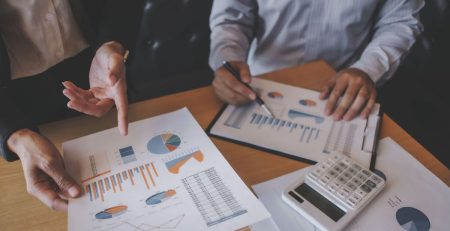The Process by which Valuation Expertise is Created
THE PROCESS BY WHICH VALUATION EXPERTISE IS CREATED
Every client needs to obtain a valuation from an expert. It indicates that the clients are looking for a valuation surveyor who is an expert in a particular area. What constitutes valuation expertise, then? Expertise is a ladder that must be carefully climbed step by step to reach the top. Knowledge, Competence, and Experience are the three essential steps in the process that lead to expertise.
Knowledge: Knowledge is defined as the facts, ideas, and understanding that a person has learned or developed through education. It stands for knowledge of how things operate, the guiding principles behind various phenomena, and conclusions gained via research in a particular area or subject. Knowing about historical occurrences, scientific theories, mathematical concepts, cultural practices, and more can all be considered theoretical knowledge.
The knowledge and comprehension of theories, principles, techniques, ideas, and standards in the field of valuation can be acquired by enrolling in relevant degree or diploma programs, master’s programs, certificate programs, CPD programs, consulting research papers, etc. Anyone who completed any of the aforementioned is knowledgeable. It’s essential to have in-depth knowledge about the subject matter, and that knowledge should be updated to reflect the context at present.
Competency: Competency is more than just knowing things it goes beyond just possessing knowledge It entails having the practical skills necessary to use the knowledge appropriately in situational contexts. The abilities, methods, and behaviors that enable a person to carry out tasks, address issues, and produce desired results are collectively referred to as competence. Competencies can be tailored to a particular job or role and may include abilities in leadership, critical thinking, technical proficiency, communication, and more. Competency in the subject area is developed through training and experience. More education, experience, and training translate into greater competence in the relevant profession. In the field of valuation, a knowledgeable individual with proper training in the pertinent subjects can achieve competency to some level and do a valuation as well as offer a value judgment. This is the stage where an individual can be upgraded as a professional acquiring a professional membership in the field. At this point, a person can advance their career position by becoming a member of a professional body.
Experience: Experience is more than simply the number of years a person has worked in a field. Experience is the practical exposure and participation a person acquires from actively taking part in responsibilities, activities, or initiatives within a certain domain. Practice on the job, observation, and learning from both triumphs and failures are common ways to gain experience. It offers insights into the nuances of an area, helps in the development of judgment, and fosters the ability to make informed decisions. The development of skills and expertise depends heavily on experience.
Professionals can gain experience in the field that deepens their understanding of practical aspects in the field of valuation through involvement or performance in a wide range of projects, participation in relevant industry and technical events to share insights, conducting research, etc.
In conclusion, knowledge represents what a person knows, competency represents what they can do with that knowledge, and experience encompasses their practical engagement and learning in a given domain. All three components contribute to a person’s overall expertise and effectiveness in a particular field. More in-depth knowledge is gained through a process of continuous learning, getting the necessary training and building one’s capacity in the field, engaging extensively in assignments or projects, conducting research, connecting with related professionals, experiments and learning from mistakes, and developing one’s communication skills all contribute to the development of expertise in a field. Visit our LinkedIn page for more insights.








Leave a Reply